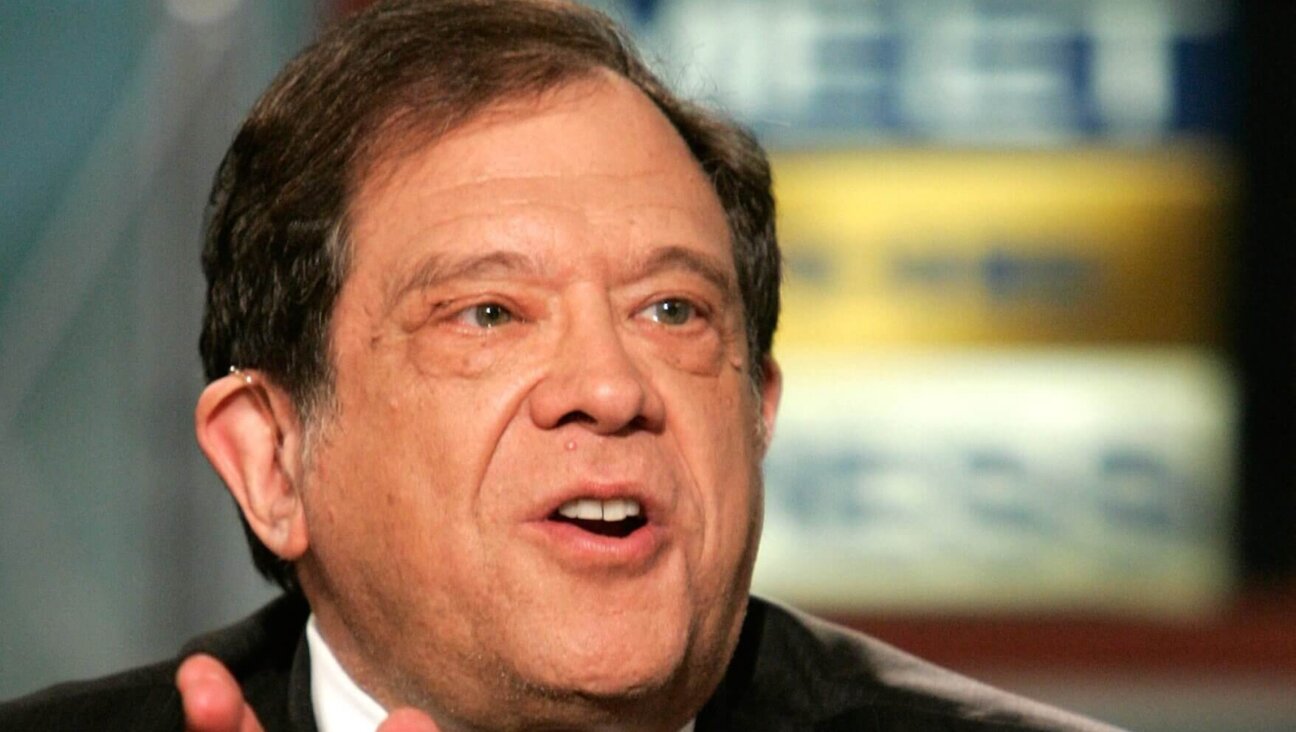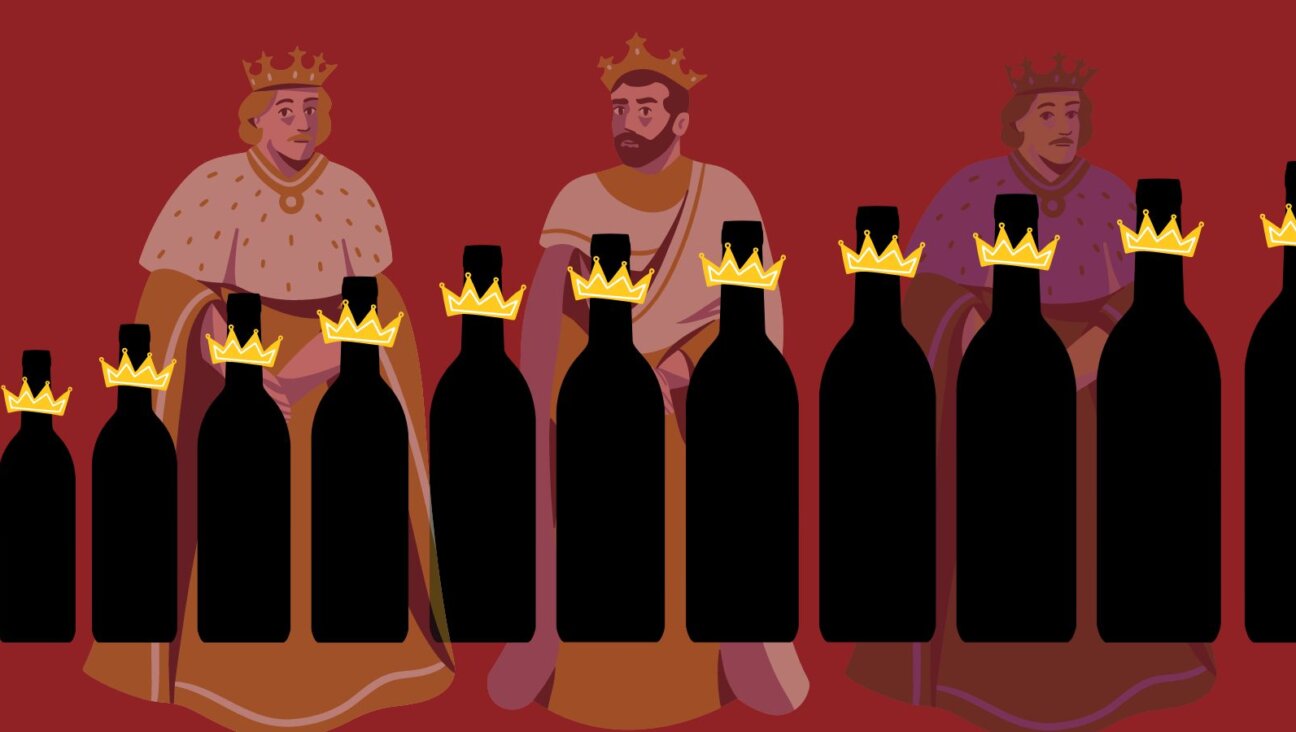A Tale of David Simon and Two Jewish Lawyers

Image by Kurt Hoffman
When I was in high school in Baltimore County, Maryland, there was a lame joke that was equally popular with white and black students. I attended Pikesville High School, a public school so Jewish, a popular rumor claimed that rival schools had thrown bagels on the field at sporting events. The school sits on the southern border of the county, just yards from Baltimore City proper.
Anyway, the joke: “What’s the longest street in the world?” The answer was “Park Heights Avenue,” a major thoroughfare running to the northern suburbs from West Baltimore — “because it goes from Israel to Africa.” Its poor grasp of world geography notwithstanding, the gag was “funny” because it was true, in a way: Jewish Baltimore and black Baltimore — at least in the late 1990s —seemed both next to each other and a world apart, almost if they had been partitioned. (In fact they had been, as books about the city’s housing segregation have explored, but that’s a topic for another time.)
With its concentration of kosher bakeries, Judaica shops and small synagogues housing various Orthodox sects, Northwest Baltimore could give Brooklyn’s Borough Park or Midwood a run for its money. When you crossed to the neighborhood’s de facto southern boundary at Northern Parkway, however, the makeup shifted to almost completely black. This is the Park Heights that Ta-Nehisi Coates has just written about in “Between the World and Me.”
The joke was meant to be innocuous — an inclusive laugh about the way things are. Thus students of all colors embrace it, even if its truth, upon further inspection, may not have been so funny. In Baltimore, like everywhere else, relations between Jews and African Americans were complicated.
Nowhere was this more apparent than in “The Wire,” the beatified HBO series created by David Simon, himself a (transplanted) Baltimore Jew. If you’re one of the few sentient beings in the Western World who haven’t seen “The Wire” (or who haven’t been browbeaten into watching it by its militantly obsessed fans), it’s often referred to as the best TV show of all time. Much of its praise is due to the show’s multidimensional and empathetic characters. Simon gave the world enduring cultural reference points, like Omar Little, a gay stickup artist with a strong preference for Honey Nut Cheerios. He also gave it Maurice “Maury” Levy, a notoriously slimy — and conspicuously Jewish — defense attorney whose area of expertise is keeping drug gangs in business and out of jail.
The show has been feted almost unanimously — it has a 98% score on Metacritic, and President Obama called it one of his favorites — but Levy’s depiction prompted some of its rare negative press. Offense seems to have been taken not because of Levy’s portrayal per se, but because of that portrayal’s supposed shallowness, especially in contrast to the other “Wire” characters, so many of whom were objectively (or at least legally) reprobate but were still treated as fallible beings. To cite a few illustrative critiques, a 2009 article in the British journal darkmatter lamented that in the show’s “world of complex motivations and contradictory actions, the lawyer Maurice Levy stands out for his near constant repulsiveness”; and in 2006 Jay Michaelson wrote that “the degree to which [Levy] conforms to the stereotype of the corrupt — and Jewish — lawyer is still somewhat striking.” Jeffrey Goldberg mused in Slate that he “had no idea that the shyster drug lawyer with the lascivious lips who secretly controls the drug cartels was Jewish until Maury started talking about mishpoche and brisket.”
For his part, Simon defended the unflattering portrayal, telling various Jewish publications that when he was a crime reporter for the Baltimore Sun, many of the lawyers he saw representing drug lords were Jewish. Censoring his observations would be hypocritical, he told The Jerusalem Post in 2010, especially after depicting “drunken Irish detectives,” “black gangsters” and “Turkish-Greek drug importers,” in “The Wire.” “If at that point I pull my punches and I say, ‘I’m not going to do a character based on reality; I’m going to walk away from it because I’m worried about how it will be perceived,’ then I’m dishonest,” Simon said. Fair enough.
I thought about Levy as I watched Simon’s newest HBO project, “Show Me a Hero,” which chronicles the conflict over the desegregation of public housing in Yonkers, New York. The setting and the story details may have changed, but this is most definitely a David Simon production. Like “The Wire,” “Show Me a Hero” conjures flawed but complex humans, and the story of America is examined through a tale of bureaucratic chicanery that is both parable and real-world cock-up. There’s a difference, though, at least to me: The Jewish lawyer in “Show Me a Hero,” Michael Sussman, played by Jon Bernthal, isn’t a uniformly bad guy. If anything, he’s the anti-Levy.
Sussman is the lead attorney for the National Association for the Advancement of Colored People, which has been fighting the city of Yonkers’s massive resistance for nearly 10 years. Unlike Levy, he’s fighting for racial justice — not vulgar, city-destroying lucre. He’s witty. He’s got a square jaw. He’s loud and proud enough to call himself “the Hebrew Hammer” while kicking ass in foosball. In short, he’s a model mensch, an inspiration to every decent middle-class kid in Syosset, New York (or Pikesville). Blame it on the apples and honey on my shopping list, but I wondered: Is it possible that Michael Sussman represents a sort of atonement for Maurice Levy?
It’s true that “Show Me a Hero” is based on real events, while “The Wire” is fiction. But Sussman still could have been written very differently — say, more whiney, or neurotic, or pushy, or calculating, or exhibiting some other reliable but exhausting stereotype. After all, popular ideas of how a Jewish lawyer is supposed to act or appear have a long history. In an amusing but probably depressing example, in 2013 someone made a YouTube mash-up of dozens of rappers giving shout-outs to their Jewish lawyers. It was meant as a compliment, I guess, but it reinforced the same old representations: that Jewish lawyers were unscrupulous, or fine with chasing money in unseemly places. Likewise, the entire premise of the TV show “Better Call Saul” rests on acknowledging — or at least imagining — an implied association between Jewish lawyers and, shall we say, conduct unbecoming a member of the bar.
In Sussman, however, viewers are shown a moral, martial-looking man who is a walking rebuke to every Woody Allen (or Maurice Levy) cliché. Sussman doesn’t have a huge part in the series, but he makes a lasting impression. So does Simon, by acknowledging that there is more than one kind of Jewish lawyer.
Still, we can’t be thankful for Sussman and disavow Levy; they are both a part of us. If Simon’s portrayal of Levy was unfair — and, truthfully, I’m not sure that it was — we owe it to him to forgive. I believe Levy was a reflection of his rage, or even betrayal, over the fact that members of his own community could be part of such a debasing business. That someone could so cravenly betray the values that Simon took from Judaism — that most American Jews take from Judaism — like tikkun olam, or repairing the world, and social justice. In 2006, soon after I had graduated from college, the Baltimore Sun published a heartbreaking series on ground rent evictions, and I remember feeling ashamed after noticing that many of the lawyers suing people out of their houses had Jewish-sounding last names. I hated them for making me feel guilty by association, and for further injuring a world that I and the Jews I knew were trying to improve, or at least not to make any worse. How could they do this?
It’s difficult to comprehend. But it’s worth remembering that though there may be Levys in this world, there are also Sussmans. (And in Baltimore, U.S. Attorney Rod Rosenstein.) On Park Heights Avenue and beyond, maybe everything isn’t so black and white.
Adam Rosen works in academic publishing in Asheville, North Carolina. He has contributed to the Los Angeles Review of Books, the Wilson Quarterly, the Atlantic.com, and other publications.

I hope you appreciated this article. Before you go, I’d like to ask you to please support the Forward’s award-winning journalism this Passover.
In this age of misinformation, our work is needed like never before. We report on the news that matters most to American Jews, driven by truth, not ideology.
At a time when newsrooms are closing or cutting back, the Forward has removed its paywall. That means for the first time in our 126-year history, Forward journalism is free to everyone, everywhere. With an ongoing war, rising antisemitism, and a flood of disinformation that may affect the upcoming election, we believe that free and open access to Jewish journalism is imperative.
Readers like you make it all possible. Right now, we’re in the middle of our Passover Pledge Drive and we need 500 people to step up and make a gift to sustain our trustworthy, independent journalism.
Make a gift of any size and become a Forward member today. You’ll support our mission to tell the American Jewish story fully and fairly.
— Rachel Fishman Feddersen, Publisher and CEO
Join our mission to tell the Jewish story fully and fairly.
Our Goal: 500 gifts during our Passover Pledge Drive!























